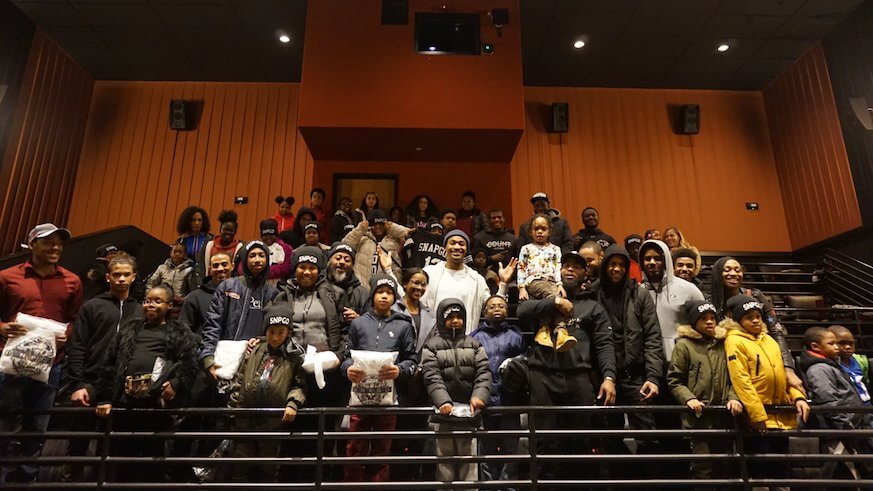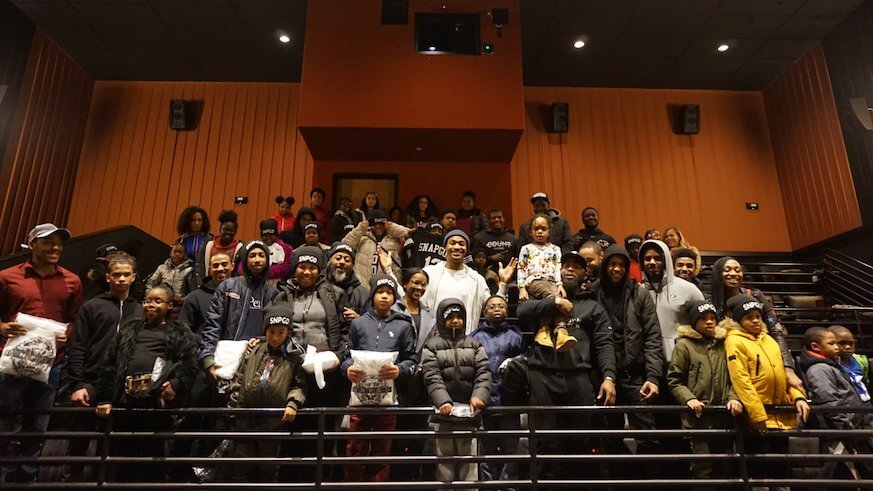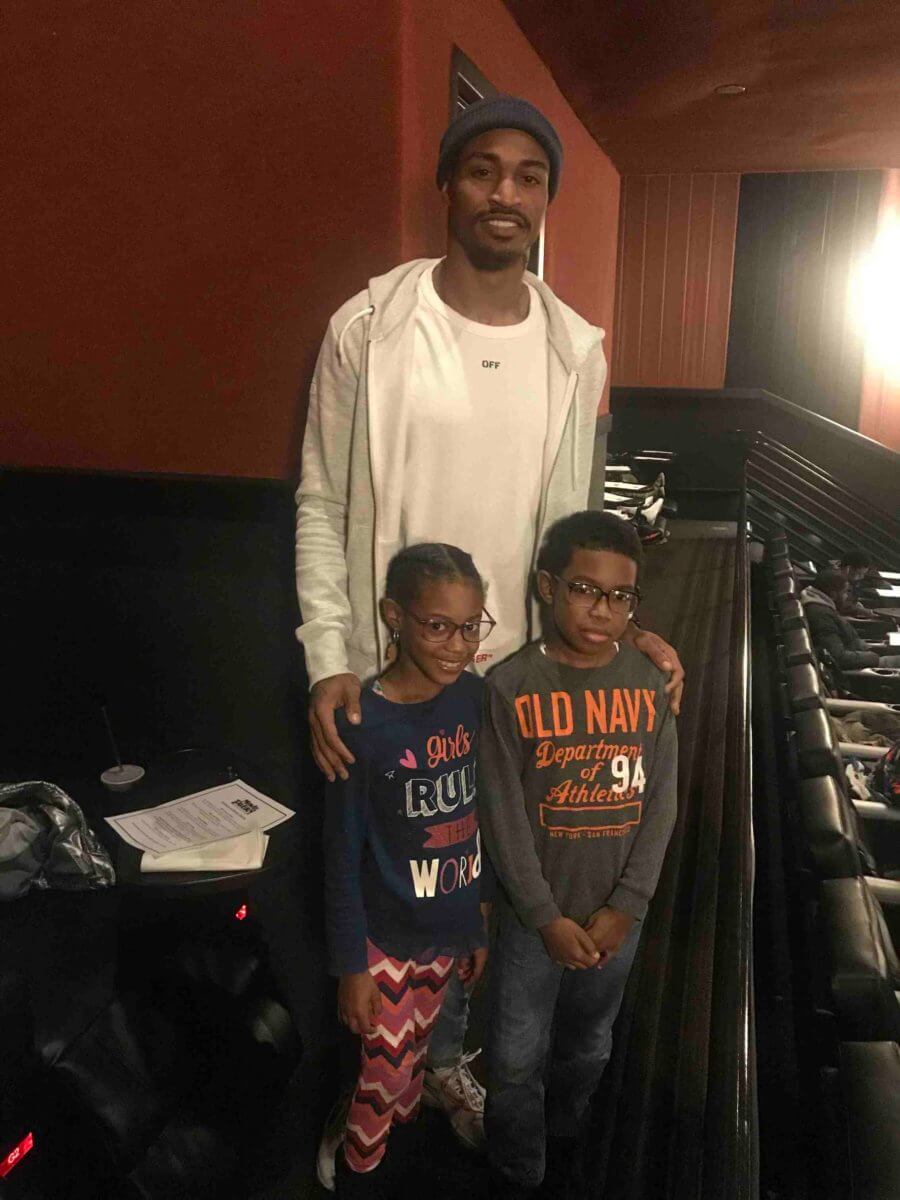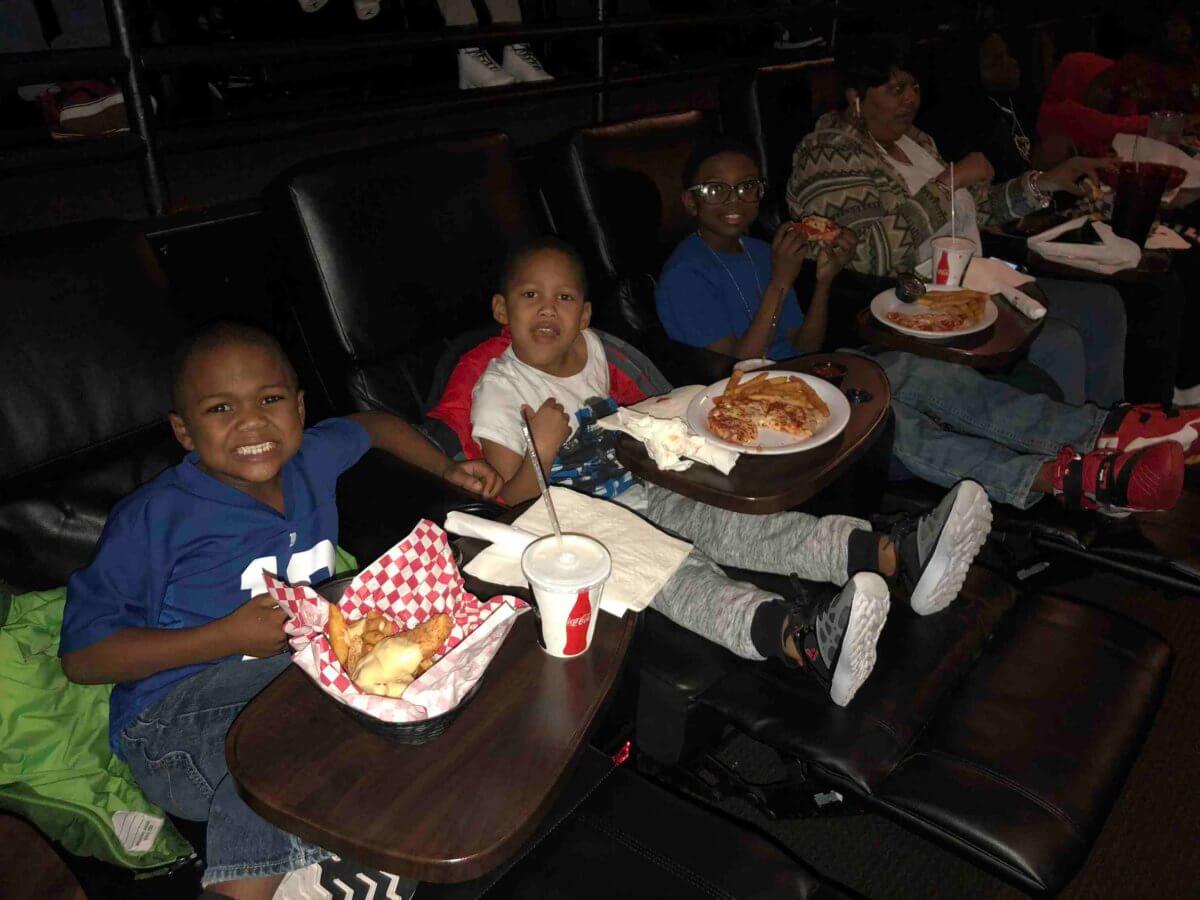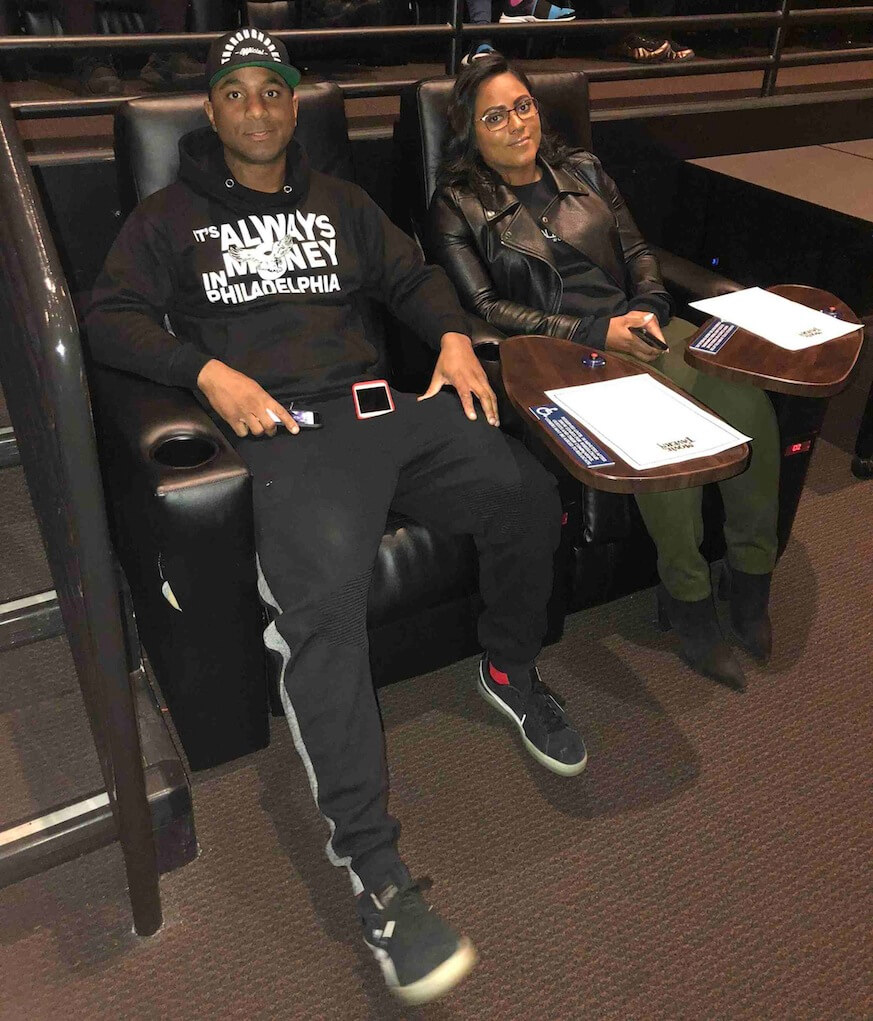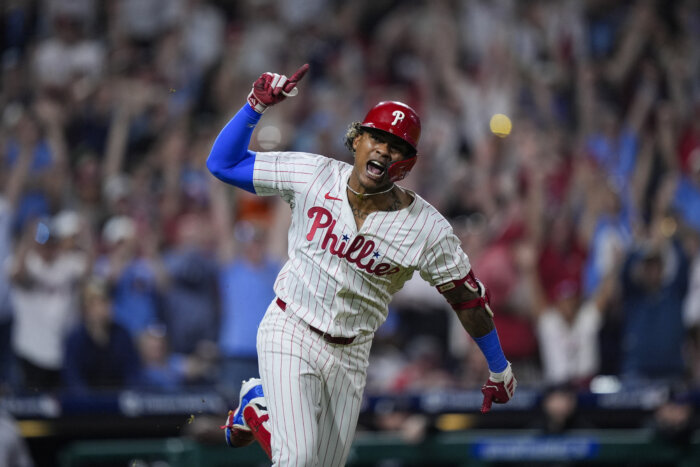The Black Panther film broke box office records in its opening weekend, netting an estimated $235 million-plus in ticket sales, and has already garnered critical acclaim and national attention far beyond most superhero films.
But the story of T’Challa, a superhero who is also king of the fictional African nation of Wakanda, meant a lot more than just any movie to the 60 Philadelphia kids who got a private opening night screening at Flourtown’s Movie Tavern.
“It’s a big, big event for our culture and inner-city youth, and I feel like everybody should at least try to come out and see it,” said Jaelen Strong, a Philly native and NFL wide receiver for the Jacksonville Jaguars who rented the theater and organized the screening last Friday night. “I wanted to help a few kids that weren’t able to come see it and bring them out. It’s all about the youth. I just want to do things to make the youth happy. That’s what keeps me going.”
From the first moment the Black Panther appeared onscreen and all the way through the film’s closing credits, the lively crowd of black schoolchildren clapped and cheered triumphantly.
One viewer, 10-year-old Cyril, was elated when asked what he thought about Black Panther.
“I liked his suit and how stealthy it was,” he said. “It was fun and cool.”
As the first of Marvel Studio’s 18 superhero movies to feature a black protagonist and all-star cast of black actors, Black Panther’s cultural importance was clear to Strong, who along with his community organization SNPGD (Snap-God, aka Survival Nobility Perseverance and Gratitude) thought it was important for inner-city kids to see Black Panther. Strong emphasized that the kids watching the African king T’Challa persevere were already heroes in their own rights.
“Seeing the youth happy, even after seeing them grind through some circumstances that a lot of people never really had to go through [is important],” he said. “For these kids to be so young and bear these circumstances and obstacles daily, shows a lot of strength. They should be repaid so that’s what I’m doing, just repaying them and telling them if they keep the same mindset of not giving up, more stuff like this will be happening down the line for sure.”
As Black Panther continues to be a cultural phenomenon, Strong is optimistic about SNPGD’s progress and direction in helping the community.
And whether he realizes it or not, Strong helped proved that whether you’re a Marvel superhero, football player or just an everyday citizen, you can help make the community better, one kind act at a time.
“We’ve been around for five years now, and we were all young in college when we thought, ‘What if we had some mentors or somebody to show us the right way?’ That’s where it started,” he said. “All hands on deck would be better in making our community great.”
Visit snpgd.co to learn more about Strong’s nonprofit.
Superhero origin story
Black Panther is a Marvel superhero created by writer Stan Lee and artist Jack Kirby that made his debut in the July 1966 issue of Fantastic Four. Known as the king of the fictional nation of Wakanda, Black Panther is credited as the first superhero with African roots in American comics.
Wakanda’s most valuable resource is a fictional metal called vibranium, which is used in various forms of technology and also happen to be the material that makes up fellow Marvel superhero Captain America’s shield.
Black Panther’s first appearance predates the beginning of the revolutionary Black activist group, the Black Panther Party. The Black Panther Party would establish itself against police brutality and other social injustices later in 1966.



